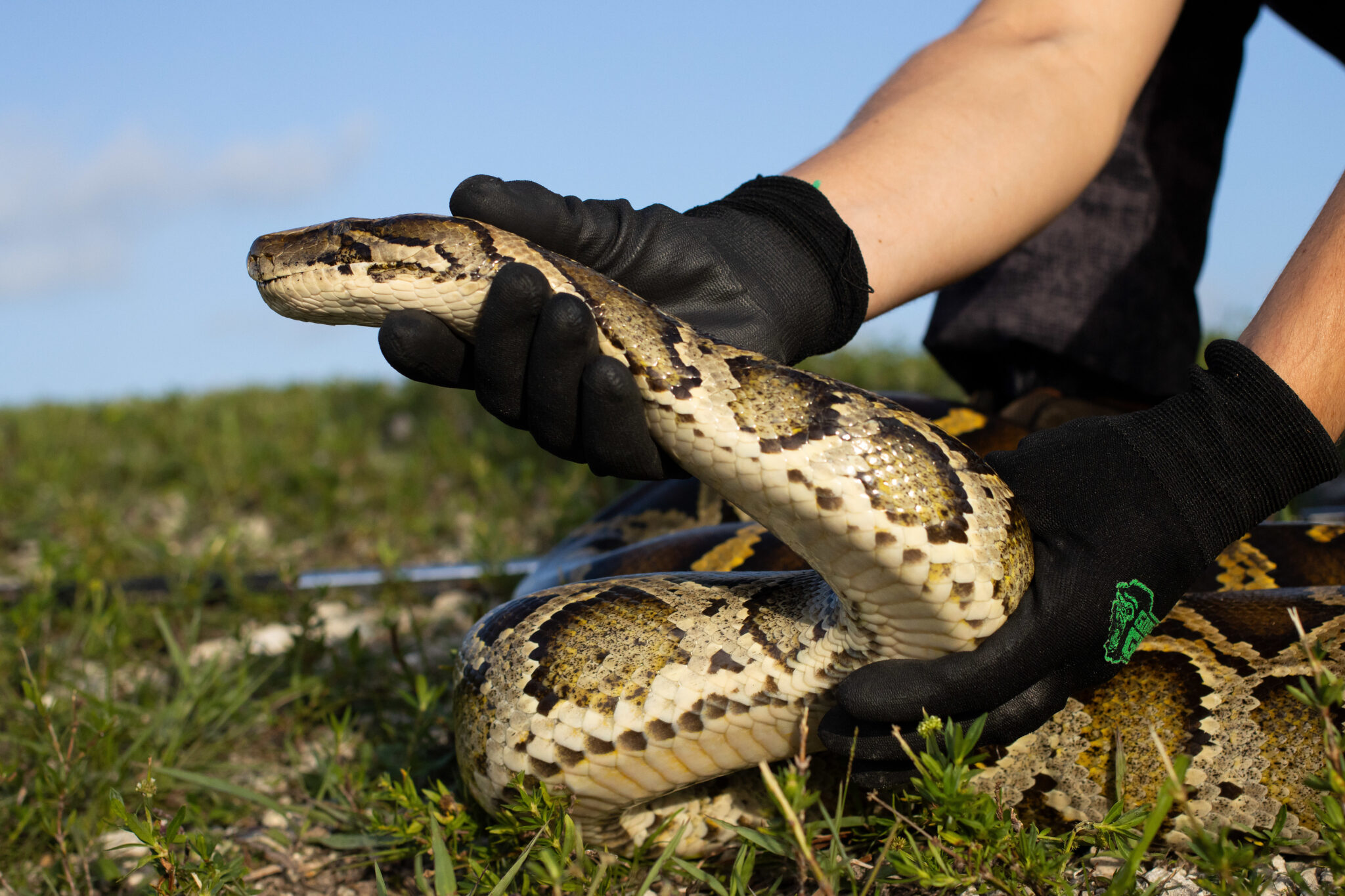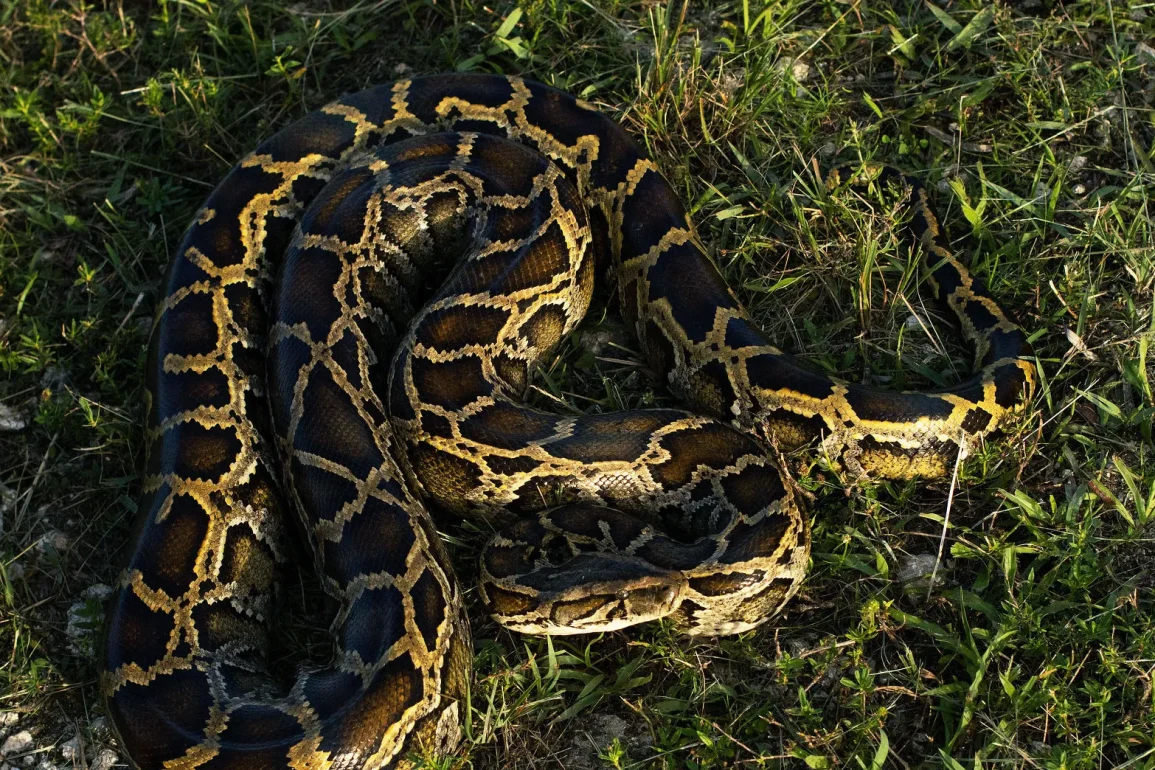The Florida Everglades are facing a severe ecological threat due to the invasion of Burmese pythons, a problem that has led to the launch of unique and large-scale initiatives to combat these invasive snakes. One prominent effort is the Florida Python Challenge, which encourages public participation in capturing and removing the pythons.
This annual event saw participation from 800 individuals this year, who were trained to humanely capture and kill the snakes. The challenge offers substantial prizes, with winners potentially earning up to $10,000.
The Burmese python problem began in the mid-1990s when these snakes, imported from South Asia as exotic pets, began to proliferate uncontrollably. Typically measuring between six to nine feet, these pythons can exceed 15 feet in length and are non-venomous.
Despite their lack of venom, they pose a significant threat to the local wildlife in the Everglades. They have been known to prey on native species such as birds, rabbits, raccoons, and even alligators, with no natural predators to control their numbers.

The situation is exacerbated by climate change, which could expand the pythons’ range across the continental United States by 2050, according to a Tufts University study. The pythons thrive in the warm climate of the Everglades, and milder winters have allowed them to spread further north. This environmental change underscores the urgency of the problem and the need for ongoing intervention efforts.
Efforts to manage the python population include not only public hunting challenges but also a dedicated Python Elimination Program. Donna Kalil, one of the program’s 100 employees and a challenge participant, emphasizes her commitment to restoring the Everglades.
She describes her motivation as a deep desire to address the ecological imbalance caused by the pythons, expressing concern about the possibility of the snakes escaping capture rather than a fear of the snakes themselves.
Despite the removal of over 14,000 pythons by hunters and program staff, the true extent of the infestation remains uncertain. Estimates suggest that around 100,000 pythons may be residing in the ecosystem. Mike Kirkland, who oversees the hunt and elimination program, remains cautiously optimistic.
He acknowledges that while the effort has not yet fully resolved the problem, every python removed contributes to the overall goal of mitigating the impact of these invasive reptiles.

